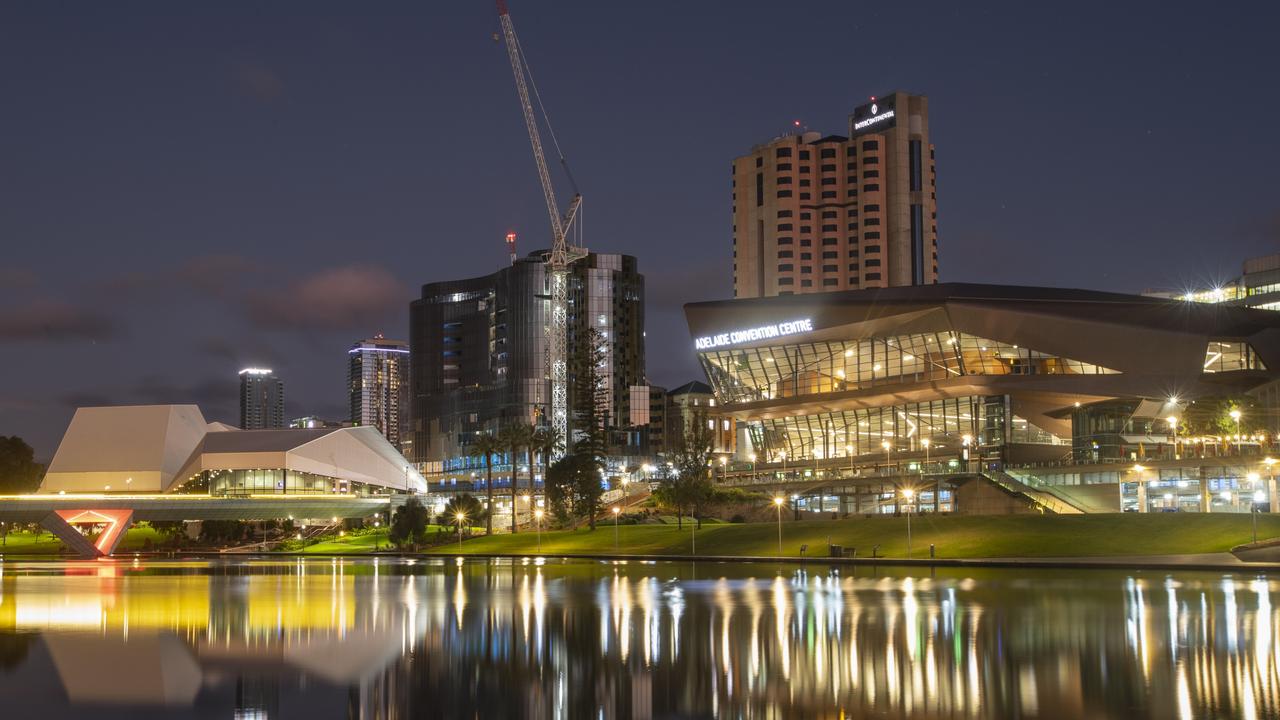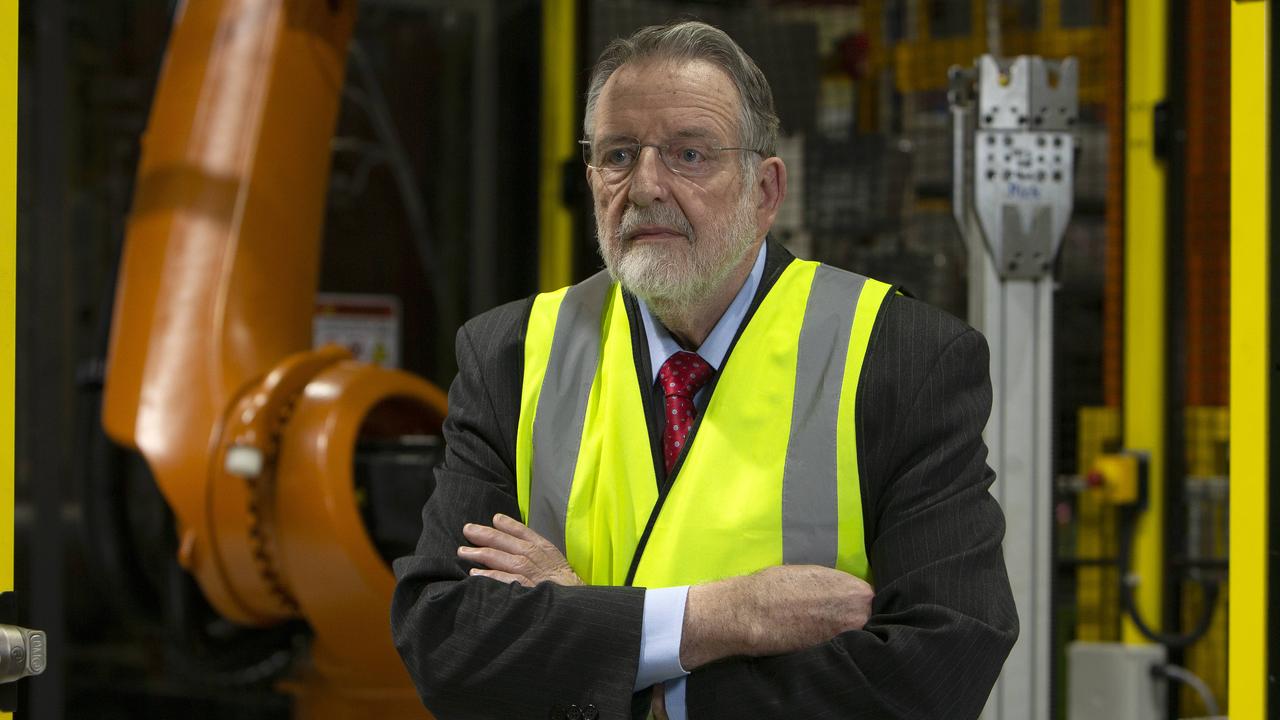Adelaide marketing agency Mihell & Lycos is seeking to raise $42 million through the issue of a new cryptocurrency
EXCLUSIVE: An Adelaide marketing and communications agency is seeking to raise the equivalent of more than $42 million in cryptocurrency via the state’s first initial coin offering (ICO).

SA Business
Don't miss out on the headlines from SA Business. Followed categories will be added to My News.
AN Adelaide marketing and communications agency is seeking to raise the equivalent of more than $42 million in cryptocurrency via the state’s first initial coin offering (ICO).
Mihell & Lycos, which has offices in St Peters and Stockholm, has published a white paper outlining its proposal, which includes the creation of a new digital currency known as Forever Coin.
Buyers will be able to use the tokens in a new experience-based digital game known as Forever Has Fallen, in which players communicate with characters and other players via social media, text messaging, email and other social and digital media.
An ICO allows funds to be raised anonymously over the internet by issuing newly created digital tokens in exchange for cryptocurrencies such as Bitcoin and Ethereum.
The new form of fundraising increased in popularity last year on the back of an explosion of interest in cryptocurrencies and the blockchain technology that supports them.
Unlike a traditional initial public offering (IPO) for shares, the ICO process is unregulated and does not confer any ownership interest of the underlying business to the buyer.
Mihell & Lycos managing director Kimon Lycos says his firm’s ICO is aimed at creating a loyal and active community of users.
“The gamification of blockchain with the creation of a token that can increase in value has never been done before,” he says.
“The key was to come up with a fantastic story, a blockbuster story. Forget about the technology - that is an enhancer of what we do.
“Our core capabilities are storytelling and consumer engagement - that’s what Mihell & Lycos will be focusing on. The IT infrastructure and communications will be handled by designated experts in those areas.”
Moscow-based blockchain expert Alexander Mitrovich, commercialisation specialist Al Jawhari and Adelaide game developer Phil Mayes from Mighty Kingdom have been brought in as advisers for the project.
Forever Has Fallen requires players to solve problems and help the main character, tech entrepreneur Karl-Axel Matiasson, recover his business empire from a murderous fraudster.
The most active players who complete tasks and help build the pool of participants will be rewarded with additional tokens, which can then be used within the game or to purchase real world items.
Demand from existing players and newcomers to the game is expected to increase the value of the token over time.
“Initially it’s pure speculation, it happens to every single ICO,” Mr Lycos says.
“It’s what you’ve got with Bitcoin. Bitcoin doesn’t present value other than if you buy it you believe you can sell it at a higher price in the future.
“As there’s hype and more attention paid to the ICO, people will jump on it for a fear of missing out.”
As part of the terms of the ICO, token sales will begin on 15 March and close on 29 April, and will be capped at 350 million tokens. Future issues will be restricted to a total supply of 1 billion tokens.
Participants will be required to pay for the tokens in Ether. Up to $42 million could potentially be raised, with the funds to go towards game development and IT infrastructure costs.
Mr Lycos says his agency has already invested approximately $500,000 in the project, which he will progress irrespective of ICO’s success.
“We’ve developed all the characters but to make those characters come to life we need investment, plus the underlying IT infrastructure is going to be a reasonable expense as well,” he says.
“Our fans are expecting a fantastic experience. If we want them to support the community then we must provide entertainment and an experience that they can't get anywhere else.”
“Our focus is on the experience - we want the community to meet up in the real world, swap theories, work on challenges together. I would love to see new relationships formed.”
Ethereum is one of the most well known ICOs, which was launched in 2014 for approximately US$0.30 per token. It is now valued at close to US$1000.
Last month Kodak announced its own “photo-centric cryptocurrency”, KodakCoin, a blockchain-based token for photographers.
Australia’s first ICO took place in October, when Perth-based solar energy trader Power Ledger raised $34 million. A wave of ICOs since then has lifted the local ICO market to close to $100 million in funds raised.
Piper Alderman, which last month started accepting bitcoin from clients last year advised blockchain-based services marketplace CanYa on its $12 million ICO.
Partner Michael Bacina says mainstream interest in cryptocurrencies and blockchain is fuelling a strong pipeline of local ICOs.
But he warns potential participants to do their due diligence.
“It’s a highly speculative and risky sector by its very nature,” he says.
“The golden advice in the cryptocurrency community is that people shouldn’t put in what they can’t afford to lose.
“Anyone looking to participate in an ICO should really be looking to see if the token has some utility which they would take advantage of in the future. They should research and understand cryptocurrencies and how they work as well as who is behind an ICO, who their advisors are.
“They are not in any way similar to an IPO and should not be treated as a casual investment opportunity.”
While some countries including China and South Korea have placed outright bans on ICOs, others like Australia, Europe, and the US are taking a more measured approach.
In September, the Australian Securities and Investment Commission issued guidance for organisations undertaking ICOs, stating that the legal status of an ICO depended on “how the ICO is structured and operated, and the rights attached to the coin (or token) offered”.
In cases where the tokens are deemed to represent a financial product or management investment scheme, they could be subject to the Corporations Act while in other cases the ICO will only be subject to general and consumer laws.
“If it looks like a financial product and quacks like a financial product then there is a good chance ASIC will consider a token to be a financial product, and if so then the existing licensing requirements apply,” Mr Bacina says.
“We’re quite fortunate in Australia that we have a regulator like ASIC and that we haven’t had the heavy response like certain other countries that appear to have a fear driven regulatory response when in my view they should be embracing this new technology.”
ICOs have raised more than $4.5 billion globally, but according to a study from EY, more than 10 per cent of those funds have been lost to hackers.
In the US, the Securities and Exchange Commission has voiced its concern over “pump and dump” scammers and earlier this week halted AriseBank’s allegedly fraudulent ICO, which targeted retail investors to fund what was claimed to be the world’s first “decentralized bank”.
On Wednesday, Facebook introduced a new policy prohibiting ads that promote ICOs and cryptocurrencies.
Mr Lycos acknowledges that ICOs carry risk for participants, who he encourages to do their own due diligence.
“Firstly I have personally spoken directly with ASIC and Austrac - what we're offering is a utility token, not a security or financial instrument,” he says.
“It’s really for people who think they’re going to get an experience out of the token - if you don't know what it’s going to be used for then don’t buy it.
“It’s up to anyone that wants to be part of the ICO to read the white paper and check the credentials of the team, and to understand what the business model is.”
“There are risks involved in buying our token but it’s no more risk than anything else you might choose to do.
“The average purchase people usually make for tokens like this is $300. If you go out on a Saturday night you would spend $300. With us you get something for your money - not just a hangover.”
Following completion of the ICO, Mr Lycos plans to list the new currency on various exchanges, on which Forever Coin will be traded. The Forever Has Fallen game is expected to launch in the first quarter of 2019.
“One of the exciting things is that this technology is enabling a small Adelaide-based company to create a model and market that’s global from day one,” Mr Lycos says.
“We need to have more companies thinking globally from day one and leveraging technology and innovation to do that.
“For us it’s very risky but the rewards could be fantastic.”
WATCHDOG’S GUIDE ON ICOs
ASIC recognises that ICOs have the potential to make an important contribution to the options available to businesses to raise funds and to investment options available to investors.
THE RISKS
SCAMS: Because ICOs are sold internationally, online and usually paid for with virtual currencies, it is difficult for regulators to make sure proper investor protections are in place.
VOLATILITY: The technology behind ICOs and the potential uses for the technology are in their early stages, so token values fluctuate due to their popularity rather than any real underlying value.
THEFT: Just as your real wallet can be stolen by a thief, the contents of your digital wallet can be stolen by a computer hacker.
ABOUT FOREVER HAS FALLEN
Participants use cryptocurrency Ethereum to buy Forever Coin - a new digital currency to be used in the Forever Has Fallen game.
■ Players interact with characters and other players via email, text and social media to complete tasks and earn more tokens.
■ The tokens can be spent on game features to maximise the playing experience, and like Bitcoin will be tradeable on exchanges.


